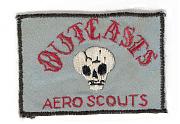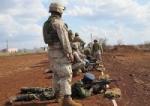True. One of the better Generals I knew had a big sign on his desk that said "Best is the enemy of good enough." System didn't like that philosophy so he departed with only two stars...
Rock and a hard place. We have to be a full spectrum force. I truly do not know anyone at all knowledgeable who questions that. That means having a ready source of JSFs, LCS and such. Production of prototypes does not offer an adequate test and ability to correct flaws for operational hardware, thus a production run is needed. The more you make, the cheaper they get -- and stuff is so expensive today that any economies are seized, even red and fishy ones...Again I agree. What I don't understand is, that given the nature of the threat out there for the foreseeable future, why we are throwing huge sums at Joint Strike Fighters, Littoral Combat Ships and FCS family of vehicles.
Besides, both those two do in fact bring potentially useful for the next 20 years or so capabilities to the table. JSF in particular has some great capabilities.
That also is the kind of quality that keeps the rest of the world honest. That quality -- and the obvious quality of the troops today (plus the huge number we alone in the woorld have with combat experience, something many forget) help in forcing others to contemplate the kinds of threat we will face for the next decade or so rather than something far more dangerous and messy.
Sorry 'bout that.I didn't come here to be insulted.As you note, OODA has some merit in certain forms of high intensity engagements. It is not a panacea though.
Totally agree. All bureaucracies go into the spin and self defense mode when they screw up or get attacked; the Armed Forces generally do it relatively ineptly. I will defend them to a very slight extent by pointing out that the lesser lights in Congress (the 481...) do have a tendency to showboat, ask inane questions (inanity topped only by the main stream media) and bloviate for hours about things not germane; that tends to make the services reply in kind. Not defending it but there's a lot of egg out there.You have a major piece of the puzzle. We also need to do a much better job at the whole info war piece. By that I mean we need to stop being "spin doctors" and start being purveyors of the truth, in a way that makes sense to the civilians who are getting caught between our troops and the bad guys hiding behind those civilians.
Not if your light infantry is properly equipped and well trained -- and we're getting there. There'll always be a need for other arms and services but we could significantly cut the number required with better training and the right gear.I couldn't agree more, which is why I suggest we need more than just light infantry in theater. I believe the target you had in mind is more bureaucratic, on this side of the Atlantic, and clustered in offices around Capitol Hill or near Arlington Cemetary. That target is a self-licking ice cream cone and I'm not sure how to engage it. Turning up the heat hasn't worked in the past.
Gotta point the heat at the right place. Congress; the rest of the system can self correct if that major impediment is repaired. Vote out all incumbents repeatedly and they'll get the message. Only one I ever voted in for reelection was Sam Nunn when I lived in Georgia -- and I now regret that. Vote 'em all out!












 and heard the Black Watch say unbelievable things about the rest of the British Army. The opinion of the 3 RAR about the rest of the Strine Army is also not good. In fairness, with no local recruitment at all, the opinion of the Fifth Marines about the 1st and 7th did not bear repeating once upon a time and the guys from the 504PIR will tell you about the shortcomings of the 325 and 505. Tribalism is an acquired trait in that respect but it has been my observation in the larger Army that such tribalism and unit loyalty is less intense, mostly due to the large number of units with whom one has served in several Divisions because of an individual assignment policy.
and heard the Black Watch say unbelievable things about the rest of the British Army. The opinion of the 3 RAR about the rest of the Strine Army is also not good. In fairness, with no local recruitment at all, the opinion of the Fifth Marines about the 1st and 7th did not bear repeating once upon a time and the guys from the 504PIR will tell you about the shortcomings of the 325 and 505. Tribalism is an acquired trait in that respect but it has been my observation in the larger Army that such tribalism and unit loyalty is less intense, mostly due to the large number of units with whom one has served in several Divisions because of an individual assignment policy.

Bookmarks